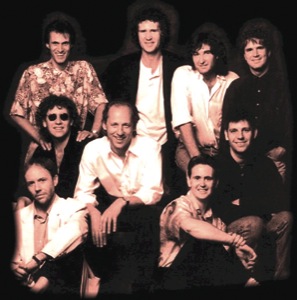
CANADA – The federal broadcasting regulator of Canada, the Canadian Radio-television and Telecom-muni-ca–tions Com-mission (CRTC), has be-come involved in the controversy surrounding the banning of the Classic Dire Straits track “Money for Nothing,” which was released 25 years ago.
The global hit single came out on the band’s iconic fifth album, “Brothers in Arms,” in May 1985 and won a Grammy for best rock performance the following year. The original version included the word “faggot” referring to homosexuals, and although a cleaned-up edition was made available, Oz-FM in Newfoundland played the first edition in February last year.
This resulted in a single complaint which read, “The song “Money for Nothing” was aired and included the word “faggot” a total of three times. I am aware of other versions of the song and yet Oz-FM chose to play and not censor the version I am complaining about. As a member of the LGBT community I feel there is no reason for such discriminatory remarks to be played on air.”
The Canadian Broadcast Standards Council (CBSC) recently upheld the complaint ruling that radio stations should cut the word “faggot” from the lyrics as the term was offensive to gay men. The Council went on to say that it was acceptable to play a suitably edited version of the song.
The CRTC, meanwhile, said it had received more than 250 complaints about this ruling, many of which had mistakenly assumed that the CRTC themselves had issued the ban.
In a statement the CRTC said, “Given the exceptional nature of this situation, the commission has asked the CBSC to appoint a panel with a national composition to review the complaints regarding the Dire Straits’ song as well as its original decision.”
While the CBSC’s Atlantic regional panel sanctioned only Oz-FM in St. John’s, Newfoundland, radio broadcasters across Canada subscribe to CBSC directives as it is a non-governmental industry group set up in 1990 by broadcasters themselves to administer ethical standards.
The CRTC said any review should consider the language in the context of the song’s message, the age of the song and the frequency with which it had been played on the airwaves.
But the CBSC said that in making its ruling it realized Dire Straits used the word sarcastically and its use might have been acceptable in 1985, but said it was now inappropriate.











